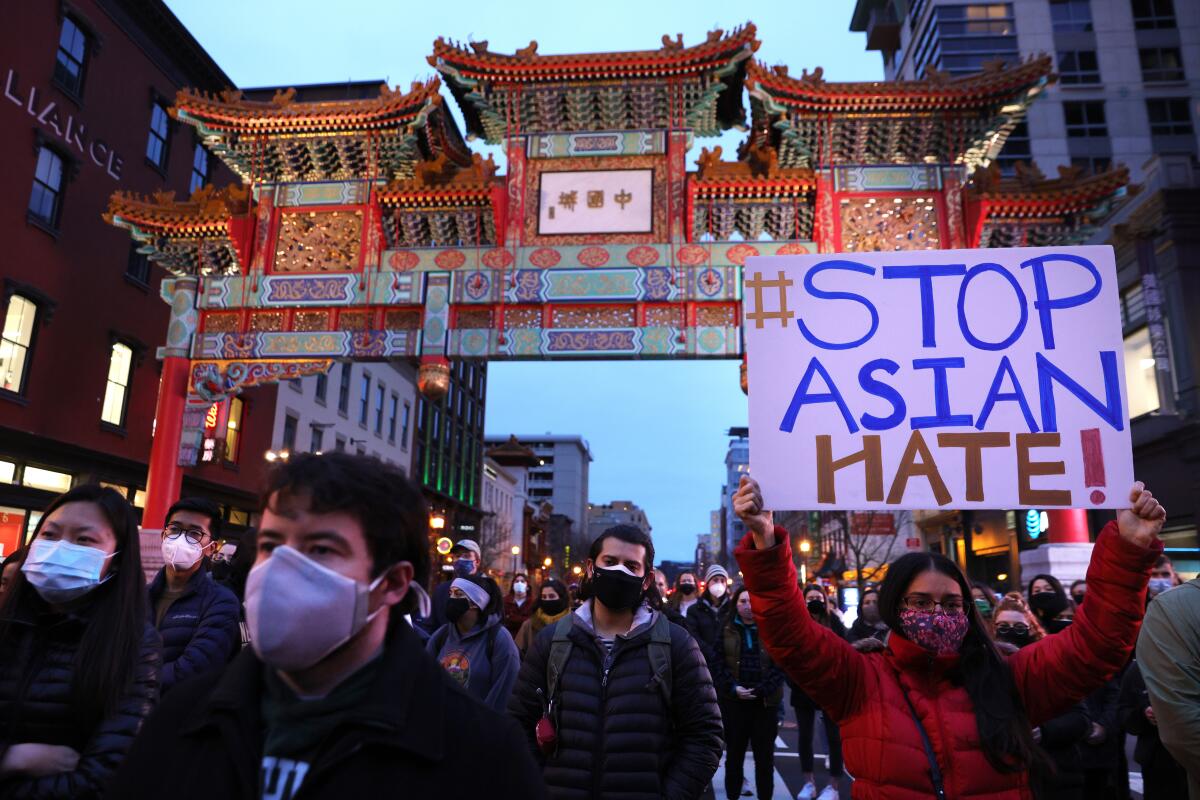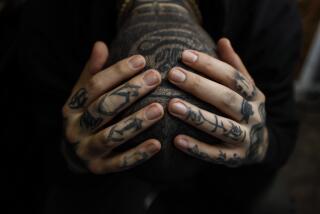Op-Ed: How Asian women are relentlessly objectified in American culture

- Share via
The police knocked on my door as I stood in my underwear, before my closet, trying to pick out a well-coordinated outfit for the day. The men in my department often dressed casually, some even came to work in shorts, but as a woman of color in a predominantly white university, I knew I’d be judged by different standards.
The knocking continued, loud and insistent.
I threw on my pants and a shirt and rushed to the door. I saw two uniformed officers through the peephole: a white woman and a Black man.
I cautiously opened the door.
“Good morning, Ma’am,” the woman said. “We received a call that there was shouting coming from inside your apartment. Are you all right?”
“Yes, I’m fine. Hmm, that’s weird,” I said. “I’m the only person here and I haven’t heard any shouting.”
“May I come in and look around?” the woman asked.
“What for?”
“I want to make sure that you are not being held against your will. The caller said they heard voices shouting and they thought a woman was in danger. I want to make sure you’re not being trafficked.”
Startled, I had no idea how to respond. Part of my brain said: Don’t ever let cops in your home unless they have a warrant. They could plant drugs, something, charge you with a crime. On the other hand, I didn’t want any trouble with the police. If I put up a fuss now, would they brand me a troublemaker and harass me in the future?
I let the officers inside. The woman looked through my apartment quickly — it was small and mostly empty. I had recently moved to North Carolina for a tenure-track teaching position and I was still unpacking. There was a foot-high stack of flattened cardboard boxes on the floor.
The woman returned and said, “There’s no one.” She turned to me, “Thank you.”
And the cops left.
I wondered if they went around to the other apartments, asking if the inhabitants were trafficked or in distress. All the people I saw in the complex were white, and I was the sole Asian American. A few weeks after I’d arrived, a white woman had followed me across the grounds. She managed to catch up to me at the “clubhouse” where the apartment management company had their offices.
“Konichiwa! I did my missionary work in Japan,” she said. “I’d love to practice Japanese with you sometime.”
“I’m Chinese, not Japanese,” I said, which I knew was really more information than she deserved but it just came out of my mouth.
Had some of my neighbors seen me walking on the grounds and assumed I was a “trafficked” woman, a sex worker, because I am Asian?
The fact that Asian women are punished for the ways white supremacy hypersexualizes our bodies is not unfamiliar to me. I was 13 or 14 years old when white veterans first started coming up to me to tell me stories of the sex workers in Asia. When I complained to my mother, who was white, she would get angry at me, for complaining. “Oh, they like you!” she said. When I shared this story with other white women in college, they reacted with envy, “It’s not fair! They think you’re exotic.”
The most recent example of this objectification of Asian women’s bodies came after six Asian women were shot and killed Tuesday in Georgia. A captain in the sheriff’s department in Cherokee County said of the white gunman at a news conference Wednesday: “Yesterday was a really bad day for him and this is what he did.” Press reports have said that the suspect, Robert Aaron Long, claimed he had a “sex addiction,” as if that would excuse murdering Asian women.
After the police came to my apartment that morning, I went to work as scheduled. Although I knew Asian American history and I knew that racism against me is not my fault, I could not escape the lingering psychological effects of having been racially profiled.
Between my classes and student meetings, I kept running to the women’s restroom to check my attire. My buttons were buttoned, my fly zipped, my blouse tucked into my pants. Still, for the entire day I couldn’t shake the feeling that I’d never finished dressing, that something embarrassing was exposed and visible to everyone but me.
May-lee Chai, an associate professor of creative writing at San Francisco State University, is the author most recently of “Useful Phrases for Immigrants.”
More to Read
A cure for the common opinion
Get thought-provoking perspectives with our weekly newsletter.
You may occasionally receive promotional content from the Los Angeles Times.










